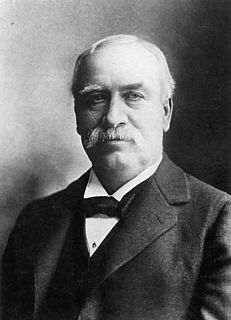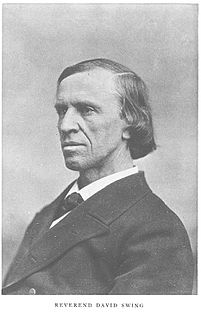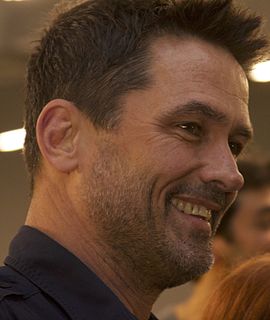A Quote by Henry Villard
There was nothing in all Douglas's powerful effort that appealed to the higher instincts of human nature, while Lincoln always touched sympathetic cords. Lincoln's speech excited and sustained the enthusiasm of his audience to the end.
Related Quotes
The life of Lincoln should never be passed by in silence by young or old. He touched the log cabin and it became the palace in which greatness was nurtured. He touched the forest and it became to him a church in which the purest and noblest worship of God was observed. His occupation has become associated in our minds with the integrity of the life he lived. In Lincoln there was always some quality that fastened him to the people and taught their to keep time to the music of his heart.
Abraham Lincoln did have intellectual instincts, a tremendous curiosity on a broad range of subjects, and a near-photographic memory for what he read. He was, at the end of the day, a politician: politics were his heaven, said William Herndon. But Lincoln did take comfort in ideas and books, more so than almost any other president, and he went to books and ideas in moments of perplexity to sort things out. Philosopher, no, but thoughtful and "surprisingly well-read" for his day.
Modern presidential debating only started with Richard Nixon and John F.Kennedy in 1960, although the proximity of that to the Lincoln-Douglas centennial is more than accidental. The reason is, I think, the medium. Abraham Lincoln and Stephen A. Douglas were talking, but the talking was in terms of logic, development, and reasoning. Television, as a medium, resists those qualities in speaking - it favors quick cuts, one-liners, and talking points. I think the modern debates are largely the prisoners of the televised medium
Remember that Abraham Lincoln was a Whig far longer than he was a Republican. As a whole, the Whigs looked upon banks and corporations as a more efficient means of development; the Jacksonian Democrats thought they were the tools of the devil, but Whigs like Lincoln disagreed. During his presidency, Lincoln favored the re-construction of a national financial system, and his most important 'internal improvement' project was the Pacific railroad.
The spiritual kinship between Lincoln and Whitman was founded upon their Americanism, their essential Westernism. Whitman had grown up without much formal education; Lincoln had scarcely any education. One had become the notable poet of the day; one the orator of the Gettsyburg Address. It was inevitable that Whitman as a poet should turn with a feeling of kinship to Lincoln, and even without any association or contact feel that Lincoln was his.
I've done my share of reading about Abraham Lincoln, throughout my life, and he wasn't always carved in stone. He was a human being. He was a very thoughtful, self-educated, complex, magnanimous human being, who was very, very strong, very smart and very canny, with a very strong sense of what was right and what was wrong. Through all that, he's become an icon, over the years, and some of his warmth and humanity has been lost. You don't tend to think of Lincoln as this warm, funny person, but he was.
Until the early 90s, when I was working on a project about the idea of free will in American philosophy. I knew that Lincoln had had something to say about "necessity" and "fatalism," and so I began writing him into the book. In fact, Lincoln took over. I wrote instead 'Abraham Lincoln: Redeemer President,' in 1999, and I've splitting rails with Mr. Lincoln ever since. If there's a twelve-step process for this somewhere, I haven't found it yet.


























